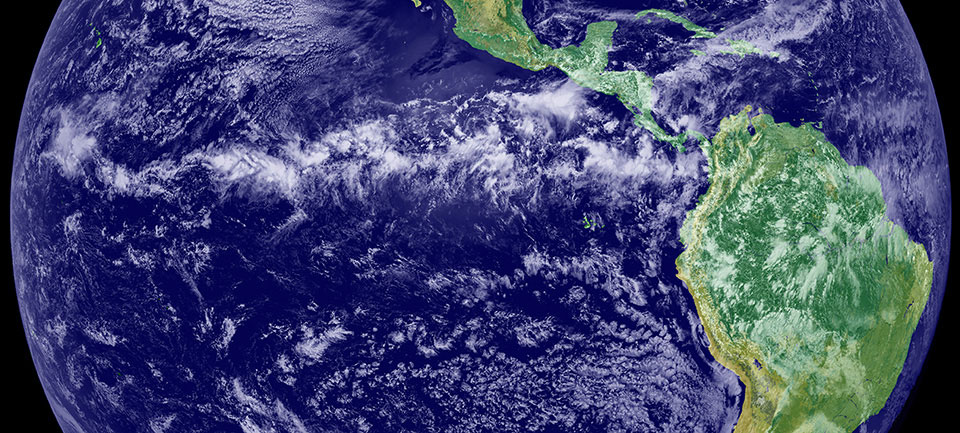
.............................................................................................................................................................
The Doldrums
What
are the doldrums?
The
National Ocean Service
The "doldrums" is a popular
nautical term that refers to the belt around the Earth near the equator where
sailing ships sometimes get stuck on windless waters.
Known to sailors around the
world as the doldrums, the Inter-Tropical
Convergence Zone, (ITCZ, pronounced and sometimes referred to
as the “itch”),
is a belt around the Earth extending approximately five degrees north and south
of the equator.
Here, the prevailing trade
winds of the northern hemisphere blow to the southwest and
collide with the southern hemisphere’s driving northeast trade winds.
Due
to intense solar heating near the equator, the warm, moist air is forced up
into the atmosphere like a hot air balloon.
As the air rises, it cools,
causing persistent bands of showers and storms around the Earth’s midsection.
The rising air mass finally
subsides in what is known as the horse
latitudes, where the air moves downward toward Earth’s surface.
Because
the air circulates in an upward direction, there is often little surface wind
in the ITCZ.
That is why sailors well know
that the area can be calm sailing ships for weeks. And that’s why they call it
the doldrums.
The National Ocean Service provides data, tools, and services
that support coastal economies and their contribution to the national economy. Our
mission is to provide science-based solutions through collaborative
partnerships to address evolving economic, environmental, and social pressures
on our ocean and coasts.

No comments:
Post a Comment